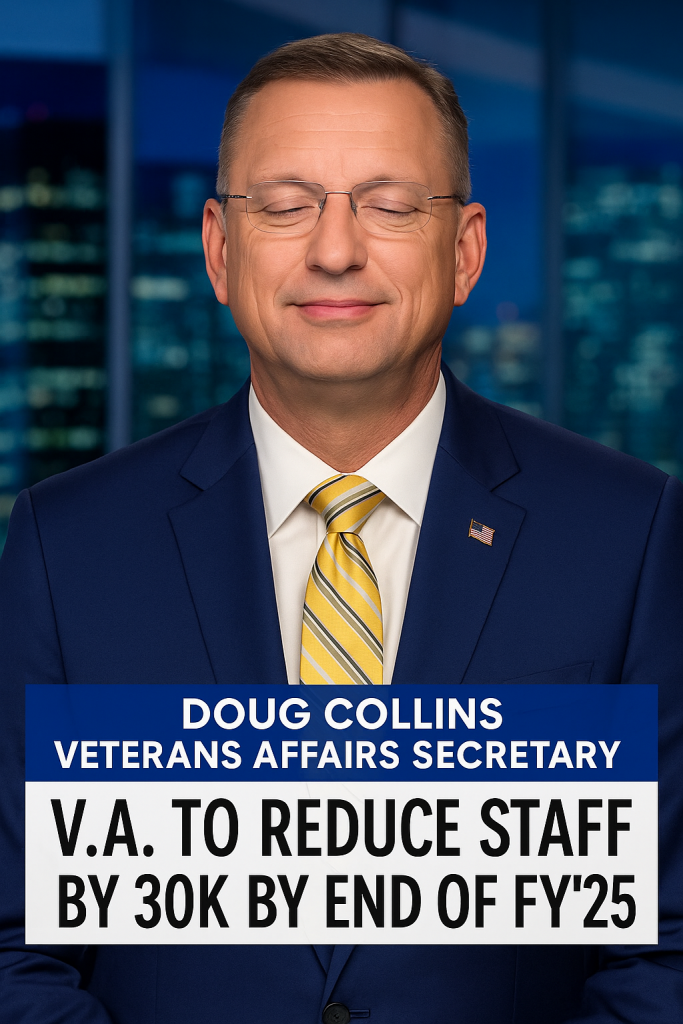Washington, D.C. — In a rare and pointed public rebuke, Secretary of Veterans Affairs Doug Collins has openly criticized Senate Majority Leader Chuck Schumer (D-NY) for what Collins describes as a failure to acknowledge critical veterans’ issues stemming from the previous administration.
Speaking at a recent veterans’ affairs forum, Collins expressed frustration that ongoing challenges within the Department of Veterans Affairs (VA) have been unfairly attributed solely to current leadership, while ignoring systemic problems left unresolved by prior policies. Collins directly called on Schumer to recognize the legacy issues impacting veterans’ care that have persisted across administrations.
“It is essential to honor our veterans by honestly confronting the shortcomings of the past,” Collins stated. “When we overlook or minimize the failures inherited from the previous administration, it hampers bipartisan efforts to improve the quality and accessibility of healthcare and benefits for those who served.”
The VA Secretary’s comments come amid heightened scrutiny of veteran care nationwide, with issues ranging from delayed medical appointments to backlogged disability claims continuing to affect thousands. Collins emphasized that while progress has been made in recent years, the longstanding institutional challenges remain substantial.
One focal point of Collins’ critique was Senator Schumer’s perceived reluctance to publicly acknowledge the missteps related to staffing shortages, outdated infrastructure, and bureaucratic red tape that veterans have faced under earlier leadership. According to Collins, these problems created a foundation of frustration and mistrust among veteran communities.
“We need leadership that confronts reality rather than rewriting it. Senator Schumer’s silence on these matters does a disservice to our veterans,” Collins argued. “Solving veterans’ issues requires transparency and a willingness to build upon lessons learned — not just political point-scoring.”
Senator Schumer, a prominent advocate for veterans’ programs, has focused much of his recent rhetoric on supporting increased funding and expanding services under the current administration’s initiatives. However, Collins’ remarks highlight a growing divide over how veteran care challenges are framed in Washington.
Policy analysts note that bipartisan cooperation is critical to addressing many persistent issues within the VA system, including reducing claims backlogs, enhancing mental health resources, and improving rural veterans’ access to services. Critics say that overlooking root causes from previous administrations risks repeating mistakes and delays meaningful reforms.
Veterans groups have welcomed Collins’ call for greater accountability, asserting that honest reflection on past failures is vital for building trust and securing sustainable improvements. “Acknowledging where we have fallen short is the first step toward ensuring no veteran is left behind,” said one advocacy leader.
As the debate unfolds, both Collins and Schumer remain influential voices in shaping the future of veterans’ care. The Secretary’s pointed criticism serves as a reminder that beyond policy proposals, candid dialogue about past mistakes is essential to truly advancing the welfare of those who sacrificed for the nation.
For veterans and their families watching closely, the hope is that this frank exchange will prompt renewed focus on comprehensive reforms rather than partisan disputes.



